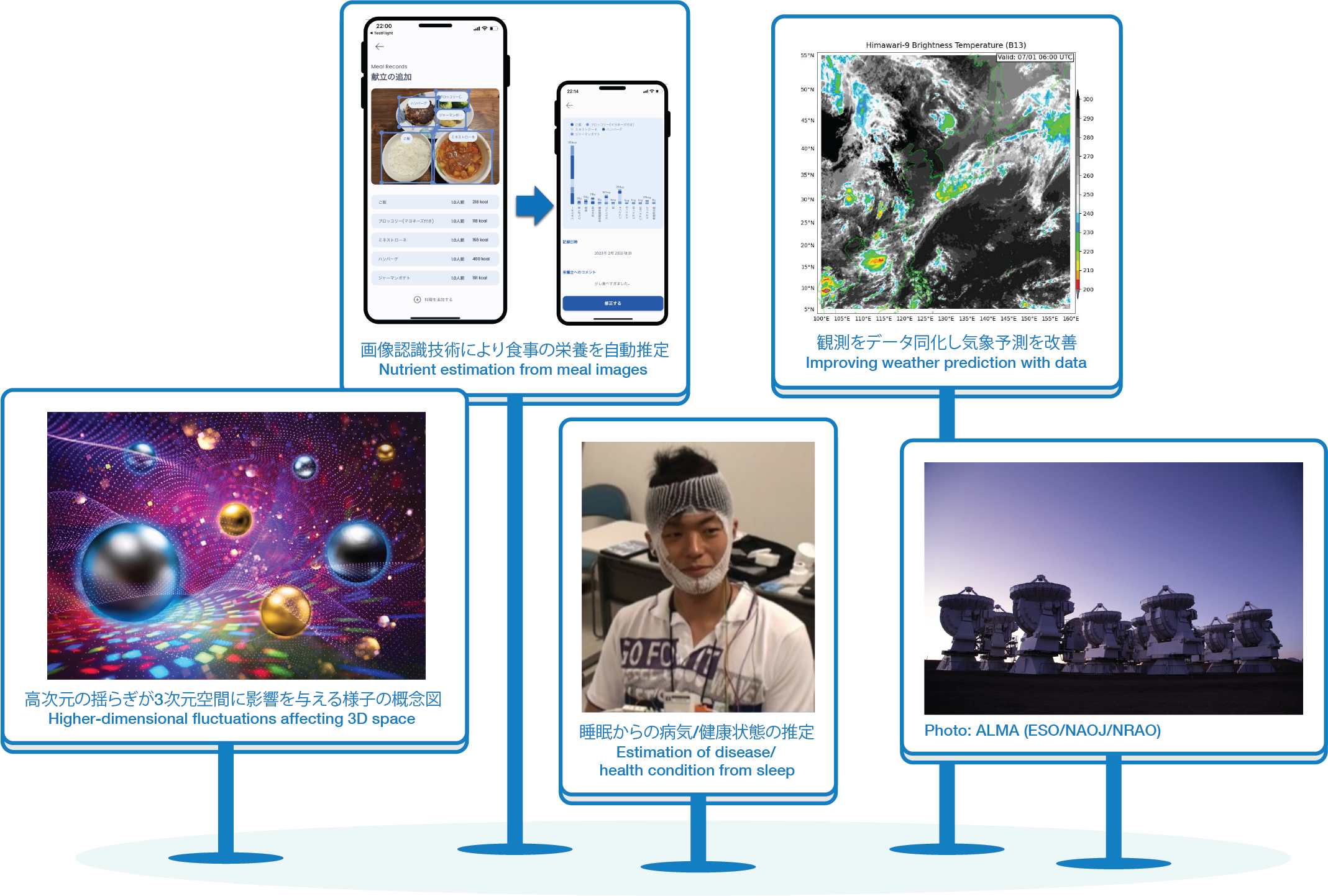Overview
Our division provides collaboration and symposium to drive interdisciplinary information science research, and develops innovative technologies and knowledge for the next-generation information society.
Leading Interdisciplinary Information Science Research
The Interdisciplinary Information Science Research Division (formally Interdisciplinary Information Science Research Initiative) was launched in October 2023 as an organization that collaborates with all of the research divisions in the information technology center. The aim of the division is to develop innovative technologies and knowledge for the next-generation information society by connecting research on large-scale information technology and information infrastructures from the interdisciplinary viewpoint. Our division plays an important role in driving interdisciplinary information science research in Japan and all over the world through management and support of the Joint Usage/Research Center for Interdisciplinary Large-scale Information Infrastructures (JHPCN).
Research Subjects
Information Science × Materials/Physics
AI accelerates simulations — Although the role of simulation in material science has been increasing, the computational cost is high and there is still room for improvement. With the use of AI technology, we aim to open up new areas of materials science that were previously computationally infeasible.
Information Science × Food/Environment
AI Technologies for Human and Planet Health — We develop applications that utilize multimedia technologies such as image recognition and natural language processing. The actual data collected through these applications enables the construction of more practical AI models.
Information Science × Space/Medicine
AI technology for adapting to complex environments — New AI technology (based on evolutionary computation, reinforcement learning, deep learning) is explored to tackle problems for which the optimal solutions are unknown. Applications include autonomous space probes, transportation network optimization, medical care (e.g., sleep, dementia), and health care.
Information Science × Weather
Data assimilation and numerical weather prediction — We are investigating data assimilation methods and applications of machine learning to improve simulations, such as numerical weather prediction.
Information Science × Planetary Atmospheric Science
Next generation planetary exploration driven by huge usage of observational data — By developing information techniques to retrieve various environmental parameters from big-data archive produced by a ground-based radio observatory, we aim to create a new era of planetary exploration that can be performed without spacecraft.
 Interdisciplinary research — where researchers with different backbones intersect
Interdisciplinary research — where researchers with different backbones intersect

